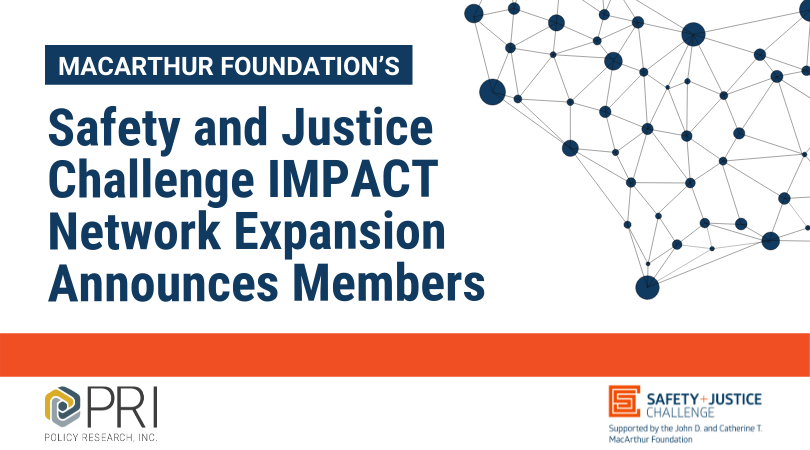Building on significant momentum for evidence-based reforms to local justice systems, the John D. and Catherine T. MacArthur Foundation has announced a behavioral health-focused expansion of its Safety and Justice Challenge (SJC) called the SJC IMPACT Network. Eleven cities and counties participating in the SJC IMPACT Network expansion will utilize a peer-to-peer model to maximize what SJC sites have learned about how to accelerate behavioral health reform and diversion across the criminal justice system. The SJC IMPACT Network will focus on community interventions that achieve both public health and public safety goals to minimize the number of people with behavioral health conditions in the criminal justice system, including community-driven race-conscious solutions to reduce harm to populations overrepresented in, or disparately impacted by, the criminal justice system.
The SJC is a $258 million national initiative funded by the MacArthur Foundation to support collaboration among local leaders and communities to reduce over-incarceration and eliminate racial disparities in local criminal justice systems by changing the way America thinks about and uses jails. More than 5 years after its launch, the Safety and Justice Challenge Network has grown to 57 sites across 32 states modeling reform. Participating cities and counties are using data to identify key drivers of incarceration and racial inequities and working with diverse groups of community members, individuals who work in the justice system, and people with lived experience to develop impactful reforms.
The SJC Impact Network will integrate six cities and counties new to the SJC: Eau Claire County (Wisconsin), West Texas Centers/Howard County (Texas), San Juan County (New Mexico), Middlesex County (Massachusetts), Orange County (California), and the Texas Health and Human Services Commission. The six new cities and counties will join five communities already working to reduce over-incarceration of individuals with behavioral health needs in local criminal justice systems: Allegheny County (Pennsylvania), East Baton Rouge (Louisiana), Charleston County (South Carolina), Milwaukee County (Wisconsin), and Pennington County (South Dakota).
The Safety and Justice Challenge brings together many of the nation’s leading criminal justice organizations to provide technical assistance and counsel to the jurisdictions. Policy Research, Inc. (PRI) will oversee technical assistance to the behavioral health-focused IMPACT Network sites, in collaboration with multiple SJC partners.
“We know that men and women involved in the criminal justice system, and in local jails in particular, have rates of mental illness and other behavioral health needs that are several times that of the general population. PRI is excited to work with IMPACT Network sites to continue the SJC’s vital work around community-based responses to the involvement of people with mental and substance use disorders in the criminal justice system,” said PRI Senior Project Associate Ashley Krider, MS.
“Jails were never intended to serve as warehouses for people with behavioral health needs, yet too many people end up there because of a lack of community services and access to care and treatment,” said MacArthur Foundation Director of Criminal Justice Laurie Garduque, PhD. “Over the past 5 years, the Safety and Justice Challenge has safely reduced the ineffective and harmful use of jails, and we are committed to supporting cities and counties as they reimagine how people with behavioral health challenges can remain in the community.”
More information about the work underway can be found at the SJC website.


